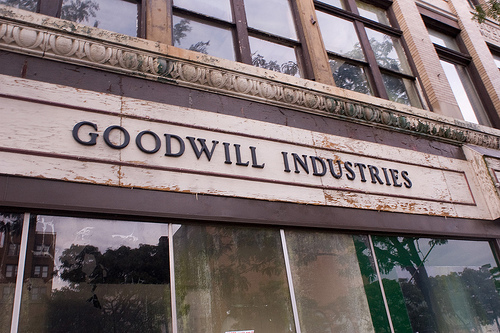Goodwill hunting: The end of 'CSR' as we know it…?


Picture: Josh [unemployed IT dude] at Flickr
In the past few weeks, the ongoing debate around Google vs. China censorship row has dominated the media, with Hillary Clinton’s speech on the need to protect basic freedoms on the internet an essential read.
While on a personal level many may applaud the decision Google has taken in leading the cyber charge against the abuse of civil liberties, I’m particularly interested in what this means for the future of CSR.
As Tom Watson recently highlighted on BBC Radio 4’s Today programme, the activities of other brands operating in China should now be under scrutiny – which begs the question how do they sit within a wider CSR policy back home?
Choosing a programme of CSR isn’t enough – if you’re not ‘being good’ then ‘doing good’ can mean very little.
As I’ve highlighted before, the financial sector has a more tarnished reputation than most as questions around trust and corporate responsibility (or rather irresponsibility) have impacted greatly on consumer and corporate relations. Just a couple of days ago Lord Myners called on fund managers to re-examine their corporate pay culture as “public attention will focus on the decisions that boards make about bonuses” according to the FT.
The consequences flowing from the banking crisis, State ownership of high street banks, MPs expense scandals, and the pervasive bonus culture among senior management in Britain has demonstrated a powerful schism between the social – in all our interests – and the anti-social – in individual interests. Financial institutions need to be acting as ‘corporate citizens’; it’s not enough to be responsible just to shareholders, but responsible to society as a whole.
I believe that the shift away from the dominance of traditional press is significant. With the rise of the internet and social media, now everyone is a media outlet. As such ‘boundaries’ – whether state, corporate or press vs. public – no longer exist, and the power comes from ‘us’, the people that Google and corporates seek to serve and create goodwill with.
As Henry Jenkins says in his fascinating video on the power of media in a 21st century transmediated world (full link here):
“… A new media system is being born… Spectatorial culture is giving way to participatory culture…
“A society based on a small number of companies controlling the storytelling apparatus is giving way to a much more complex mediascape where average citizens have the ability to seize control over media technologies and tell their own stories in powerful new ways…
“ As average people develop the ability to tell their stories, we are seeing different perspectives emerge.”
Thanks to the power of social media, consumers can, will, and do shout from the rooftops (or their laptops) about any wrong-doing or socially irresponsible behaviour, wherever in the world it may be.
A recent report found that just 21% of people in the UK trust banks to ‘do’ what is right -with trust also named as the key driver of corporate reputation (72%) followed by transparent and honest business practices.
Now, perhaps more than ever, those trying to be seen to ‘do’ good – or using CSR as a get-out-of-jail free card – will be found out. BBC business editor Robert Peston said (see his full blog post here):
“I have it from impeccable sources that several of them [banks] have rung up their mates and contacts in 10 Downing Street, the Treasury and BIS, to ask if they can be let off the 50% one-off bonus tax… In return they would make a one-off contribution to some worthy project or other…“
If you’re not demonstrating responsibility, you’re ultimately irresponsible.
The question now is – if you don’t believe in CSR or don’t really mean it, then should you be doing it?
